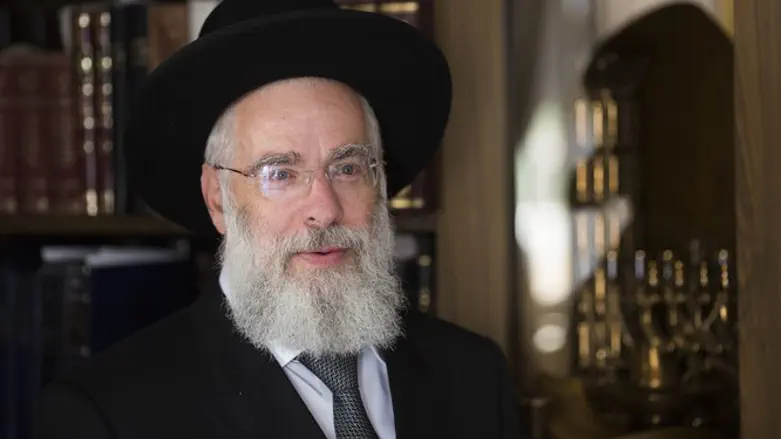
Shunned by his brothers and sold into slavery, Yoseph (Joseph) finds himself living as an alien slave in the home of Potiphar, one of Egypt’s most powerful aristocrats. Relentlessly pursued by Potiphar’s wife, Yoseph’s life has become unbearable.
With the passage of time, Yoseph can no longer tolerate the tension: “There was an opportune day, when he entered the house to do his work". Rashi cites the opinion of Rava that after so many weeks and months of protesting her advances, Yoseph’s resistance had all but crumbled, and the “work” he sought to do that day was to yield to Potiphar’s wife. At this crucial moment though, “the image of his father appeared to him” and prevented him from sinning.
Though this answer is certainly inspiring, it needs to be understood. What does it mean that “the image of his father appeared to him”? In what sense is his father’s image the soothing balm that mollifies Yoseph’s suffering soul and enables him to preserve the moral high ground in this impossible situation?
That day, in the palace of an Egyptian noblewoman, the deck was stacked against him. Potiphar’s wife’s unyielding pressure, coupled with his feelings of alienation from his former life, almost gave way. Yoseph faced the challenge of his life:
"Will I behave in a way that reflects the morals and truths taught in my father’s home, or will I forge a different path that is unconnected to my heritage and my past?" At this critical point, in his moment of truth, Yoseph reached deep inside and connected to his roots. “The image of his father appeared to him”. Yoseph connected to his spiritual heritage. Yoseph internalized that he had the inner strength to continue his father’s spiritual legacy.
Yoseph chose his spiritual future by connecting to his roots, to what lay deep within him.
In doing so, Yoseph set a standard for the rest of us. The Sfat Emet writes that when Yoseph withstood his test, he honed the trait of spiritual endurance and thereby obligated the rest of us to follow 
Even those who are estranged from Torah and mitzvot get in touch with their inner spirituality and connect to their souls when faced with life and death situations, as in Macabbean days. suit. Yoseph bequeathed to the coming generations, in Egypt and beyond, the spiritual stamina to withstand temptation, to remain true to yourself and your values.
suit. Yoseph bequeathed to the coming generations, in Egypt and beyond, the spiritual stamina to withstand temptation, to remain true to yourself and your values.
Shlomo Hamelech writes: “The soul of man is the candle of God”. The Ba’al HaTanya explains that man’s soul is similar to a candle in that it always aspires to ascend. Just like a flame will surge upwards if someone attempts to squelch it, man’s soul always seeks spiritual greatness. Generally though, it is difficult to detect this character trait of the soul.
Man’s soul pines for God, but this yearning is hidden; it remains obscured in the deepest recesses of man’s consciousness. When man is faced with struggles - when his soul is put to the test – he reaches inside and discovers the deep spiritual forces that lie within. In his moment of truth, he becomes aware of his inner love for God and it rises to the surface.
Throughout Jewish history, this phenomenon has been observed time and again. Even those who are estranged from Torah and mitzvot get in touch with their inner spirituality and connect to their souls when faced with life and death situations. Indeed, this behavior also stood at the core of the Hanukkah miracle.
The Sefer Makabim writes that Mattityahu (Mattathias, father of Judah the Maccabee) cried out “Whoever is for the Lord, join me”, thereby invoking Moshe’s cry from the battle that followed the sin of the Golden Calf in the wilderness. Both in the wilderness and in the battle against the Greeks, the people who felt the pull of God within them were the ones with the spiritual stamina to pass the test.
This spiritual stamina was cultivated by Yoseph in the depths of his personal crisis in Egypt, and it continues to form Am Yisrael’s spiritual bedrock today.
Rabbi Yaakov Shapira is the Rosh Yeshiva of Yeshivat Mercaz HaRav in Jerusalem